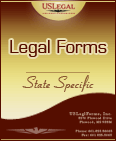Equipment Placement Agreement

The Property that is being provided for the use of Client as an accommodation to the Client. It is being loaned. This is a bailment. A bailment is the act of placing property in the custody and control of another, usually by agreement in which the holder (bailee) is responsible for the safekeeping and return of the property. Examples include securities left with the bank, autos parked in a garage, animals lodged with a kennel, or a storage facility (as long as the goods can be moved and are under the control of the custodian). There are different types of bailments -- bailments for hire in which the custodian (bailee) is paid, constructive bailment when the circumstances create an obligation upon the custodian to protect the goods, and gratuitous bailment in which there is no payment, but the bailee is still responsible.
There is a lower standard of care imposed upon the bailee in a gratuitous bailment, and the parties may contract to hold the bailee free from liability in any bailment. As the law of bailments establishes a lower standard of care for the bailee in a gratuitous bailment agreement, such an agreement or receipt should indicate explicitly that the bailee is acting without compensation.
When a bailment is for the exclusive benefit of the bailee, the bailee owes a duty of extraordinary care. If the bailment is for the mutual benefit of the bailee and bailor, the bailee owes a duty of ordinary care. A gratuitous bailee must use only slight care and is liable only for gross negligence.
(more...)
Download: Equipment Placement Agreement
Available from: USLegalForms.com
SKU: US-02936BG
NOTICE: The information and links contained on this web page are intended only to be merely informative and are NOT intended to provide legal advice to any person/entity. Consult with and seek the advice of a qualified lawyer. E.&O.E. Click here for important legal disclaimer.

